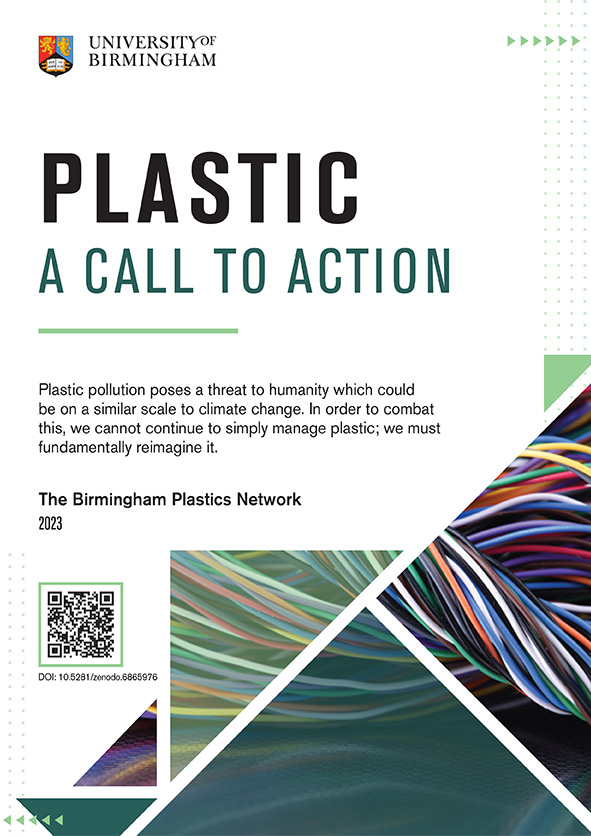Read the Plastic: a call to action report (PDF)
 Plastic pollution poses a threat to humanity which could be on a similar scale to climate change. In order to combat this, we cannot continue to simply manage plastic; we must fundamentally reimagine it.
Plastic pollution poses a threat to humanity which could be on a similar scale to climate change. In order to combat this, we cannot continue to simply manage plastic; we must fundamentally reimagine it.
History strongly suggests that a sustainable solution to plastic will not emerge without co-ordinated, multi-stakeholder, multi-disciplinary engagement by all those with a vested interest in plastic across its value chain.
The key challenges
There is an urgent need to reimagine our relationship with plastic and this call to action looks to set in motion an innovative approach to future policy and innovation regarding a sustainable solution to plastic. This is driven by the following top-level concerns about the ways in which environmental and social concerns surrounding plastic are currently being perceived or addressed:
- The responsibility for who addresses (and benefits from) the plastic problem is poorly understood and often disputed.
- The cost of plastic does not reflect its full environmental cost, nor does it reflect the value plastic contributes to society.
- Replacing or reducing plastic usage needs to be done in such a way that both addresses, but also conversely does not increase, the risk of harm to the environment, social equity and health and well-being.
- There are significant gaps in our understanding of the downstream impacts and implications of plastic production, usage and disposal.
- Many initiatives tend to focus on one type of plastic production or usage. It is vital to tackle all plastic, not just the most visible usages (e.g., consumer packaging).
- Many past solutions to the plastic problem have inadvertently made things worse and, due to a lack of engagement with key stakeholders and limited interdisciplinary research in this domain, there is a risk that the solutions of today may well do the same.
- There is misleading messaging or greenwashing around key terms, e.g. ‘biodegradable’, ‘bioplastic’, ‘zero-plastic’ and ‘compostable'.
- There is a strong public desire to address the plastic problem, but our recent UK survey suggests there is a mismatch between public expectations of how plastic should be produced, labelled and disposed of, and the realities of what is currently being implemented or prioritised.
- Science, business, policy makers and communities have parts of the solution, but no-one seems to be connecting all the dots.
Charting a path forward
It is vital to adopt a whole systems approach to understanding the complex intersecting issues surrounding plastics, in order to better inform the ways in which we produce, use and dispose of them.
Furthermore, we need to understand where the responsibility lies for all the avoidable costs and impacts of plastic, and engage all stakeholders if we are to have any chance of producing and using plastic sustainably.
Currently, knowledge of the complex intersections between plastic and key socioecological systems is too fragmented for informed decision making.
The recommended forward strategy outlined in Plastic: a call to action report (PDF), led by the Birmingham Plastics Network, will move beyond the fragmented, siloed solutions promoted by those with vested interests, by creating an interdisciplinary, science-based and inclusive process that will examine the possibility of solutions that optimise the sustainable potential of plastic.
For futher information, please visit the Birmingham Plastics Network page.